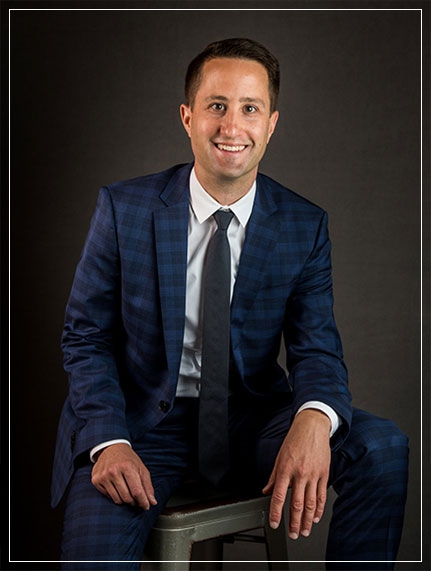Our Flagstaff Lawyers Explain How Filing a Motion to Suppress Evidence Can Be a Powerful Defense Strategy
 If you are facing criminal charges in Flagstaff or Northern Arizona, you must fight back to avoid harsh punishments, such as a lengthy prison sentence, a hefty fine, and the long-term consequences if you're convicted. Your first step should be to hire an experienced Flagstaff criminal defense lawyer at Griffen & Stevens, PLLC.
If you are facing criminal charges in Flagstaff or Northern Arizona, you must fight back to avoid harsh punishments, such as a lengthy prison sentence, a hefty fine, and the long-term consequences if you're convicted. Your first step should be to hire an experienced Flagstaff criminal defense lawyer at Griffen & Stevens, PLLC.
"Our lawyers are here to mount a strong defense to help you achieve the best possible outcome in your criminal case. We’ll explore all possible defenses that may help you fight the Northern Arizona criminal charges you face, including filing a motion to suppress evidence being used against you. If successful, it can significantly alter the outcome of your case."
What Is a Motion to Suppress Evidence in Arizona?
A motion to suppress evidence is filed by your defense attorney, asking the judge to exclude certain evidence from being presented during your trial. This can be a game-changer in your criminal case that can help you whether you are facing misdemeanor charges or more serious felony charges, such as gun charges or murder.
If the motion is granted, the prosecution may lose critical pieces of evidence that might help prove their case against you. Without this evidence, our lawyers may be able to win a motion to dismiss your case. Even if your case continues, our legal team may be able to negotiate a favorable plea bargain—even if you are guilty.
Common Grounds for Filing a Motion to Suppress Evidence in a Flagstaff Criminal Case
A motion to suppress evidence being used against you can be based on several grounds. However, most people can’t identify the basis for a motion to suppress on their own because they don’t have the necessary experience or knowledge of criminal law.
You need the assistance of a criminal defense lawyer at Griffen & Stevens, PLLC who recognizes potential issues that could be grounds for filing a motion to suppress evidence and understands Arizona's Rules of Criminal Procedure. Here are some common grounds for filing a motion to suppress evidence that we may use to defend you:
#1: Unlawful Search and Seizure
Under the Fourth Amendment, you are protected from unreasonable searches and seizures. For evidence to be admissible, law enforcement must follow strict protocols when conducting searches.
If the police conducted a search without a proper search warrant or probable cause to stop or search you, any evidence obtained during that search can be suppressed. If this happens, the prosecutor may be unable to prove all the elements of the crime you are accused of committing or meet their burden of proving your guilt beyond a reasonable doubt.
#2: Miranda Warning Violations
You have the right to be informed of your rights if you’re arrested, commonly known as your Miranda rights. The police must tell you that you have a right to remain silent and to have an attorney represent you.
If these rights are not read to you before questioning, any statements or confessions you make may be excluded from evidence. If the prosecution's case against you is primarily based on your statements or confession, our attorney may be able to get the criminal charges dropped if your motion to suppress is granted.
#3: Violations of Your Constitutional Right to an Attorney
The Sixth Amendment guarantees your right to legal representation. This right is crucial during interrogations and throughout the legal process. If you are denied access to a criminal defense lawyer when you have requested one, any evidence obtained during that time can be challenged.
#4: Chain of Custody Errors
For evidence to be admissible in court, its integrity must be maintained through a documented chain of custody. The process of preserving evidence tracks the handling and storage of evidence from the moment it is collected until it is presented in court. Any breaks or errors in this chain can lead to questions about the authenticity and reliability of the evidence. We may be able to get it excluded from being used against you in your criminal case.
